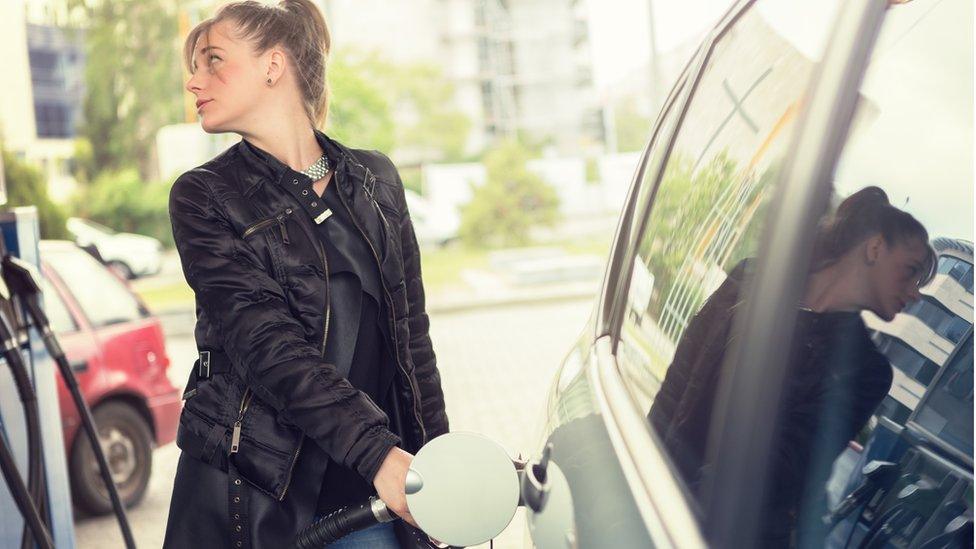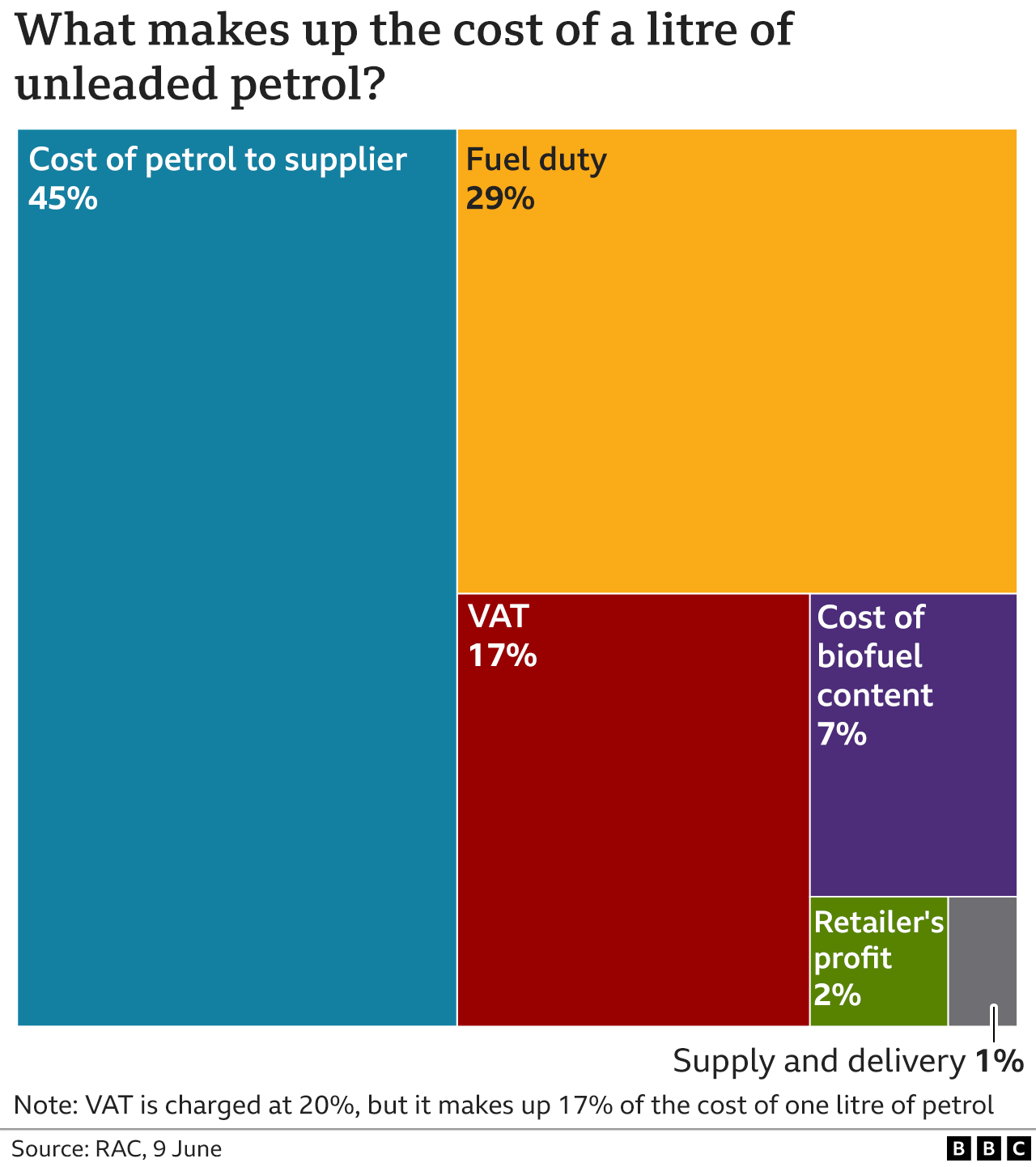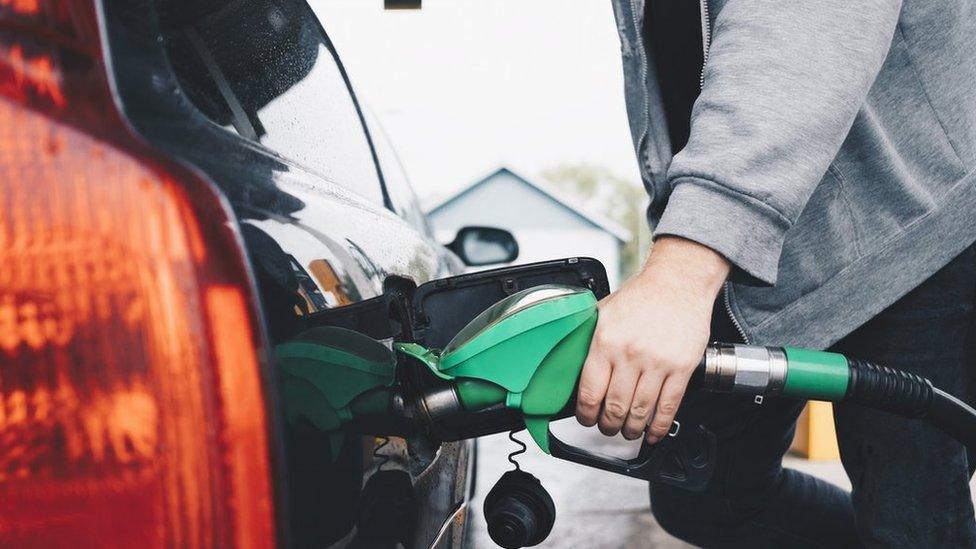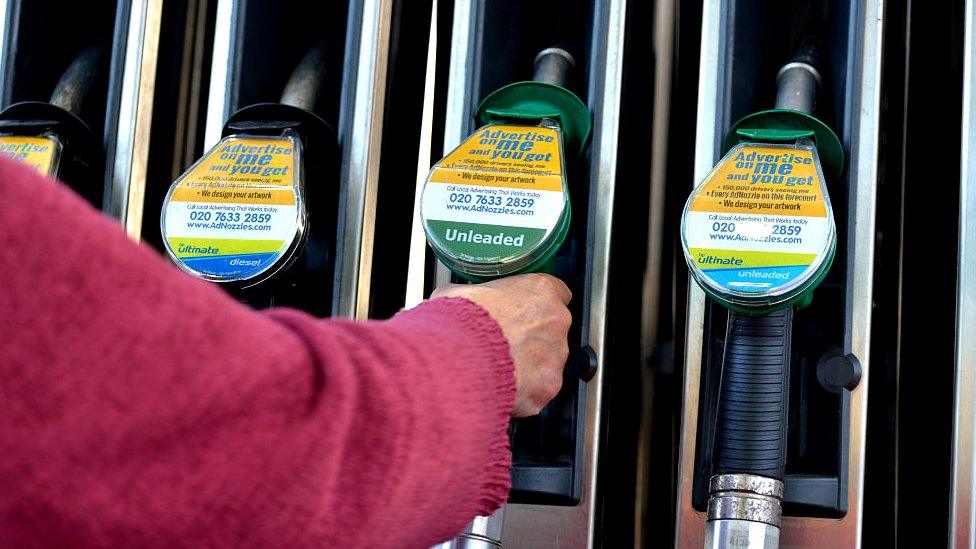Petrol stations hit back in fuel duty row
- Published
- comments

Petrol stations say they have been "unfairly scapegoated", after the government raised concerns a 5p fuel duty cut was not being passed on quickly enough to drivers.
The Petrol Retailers Association said the cut had been passed on and its members were operating on "razor thin margins" due to rising wholesale costs.
Petrol prices hit a new record of 185p per litre on Sunday.
The UK's competition watchdog has launched a review of the fuel market.
It came after Business Secretary Kwasi Kwarteng asked the Competition and Markets Authority (CMA) to look at whether the 5p per litre duty cut, which was announced in March, was being passed on to drivers and whether there were price variations between local forecourts.
Fuel prices have soared in recent months, driven by the war in Ukraine and moves to reduce Europe's dependence on Russian oil.
The Petrol Retailers Association, which represents independent fuel retailers, welcomed the CMA investigation, which will report back by 7 July.
It said the review would confirm the cut was being passed on and that "competition between forecourts remains vigorous".
"The briefings provided by government spokespeople to the media indicate that ministers don't understand how fuel prices are set," the association's executive director, Gordon Balmer, said.
"Petrol retailers have been unfairly scapegoated for rises in the wholesale price of fuel over which they have no control," he added.
"If the government wants to ease the burden of pump prices on motorists, they should cut fuel duty by a much more substantial margin, just as many other governments of European countries have done."


Motoring groups including the RAC and the AA have also called for the government to cut fuel duty further.
But the prime minister's official spokesman said there were "no plans" for a further cut.
Diesel prices have also been rising, although they fell back slightly on Sunday to 190.92p per litre, after reaching a new record of 191.03p per litre on Saturday.
It means the average cost of filling a 55-litre family car with diesel is now £105.01, while the price for a petrol car is £101.77.
Some petrol stations are already charging far higher than average prices, with one retailer in west London charging nearly £2.50 a litre.


Retailers base their prices on the wholesale cost of petrol and diesel but there is typically a two-week lag for pump prices to reflect any changes in wholesale prices due to the time it takes for fuel to reach forecourts.
The AA said the wholesale price of petrol had been lower than its peak before the Jubilee bank holiday for more than 10 days and "petrol prices should be grinding to a halt, at least temporarily, by the end of the week".
However, wholesale diesel prices are continuing to rise.
The AA's fuel price spokesman, Luke Bosdet, said: "Diesel's relentless surge in costs remains a nightmare, with its knock-on impact for the cost of delivery of goods and services, and therefore inflation."
He added that the "extremely volatile" petrol market meant "only time will tell whether the recent fall in costs is a brief pause or a longer-term reversal".
Simon Williams, from the RAC, said the CMA investigation was a "positive step" but added that retailers were "constantly having to put up their prices to reflect the fact their costs are increasing every time they buy new stock".
He said the government's 5p fuel duty cut had had "little effect, whether or not it's been fully passed on by retailers", because of rising wholesale prices.

How are you or your business being affected by the rising cost of living? Share your experiences by emailing haveyoursay@bbc.co.uk, external.
Please include a contact number if you are willing to speak to a BBC journalist. You can also get in touch in the following ways:
WhatsApp: +44 7756 165803
Tweet: @BBC_HaveYourSay, external
Please read our terms & conditions and privacy policy
If you are reading this page and can't see the form you will need to visit the mobile version of the BBC website to submit your question or comment or you can email us at HaveYourSay@bbc.co.uk, external. Please include your name, age and location with any submission.
- Published11 June 2022

- Published14 August 2023
